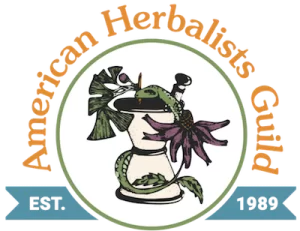
The past several months have been a stressful time for a lot of us. Our planet and our communities have been aching and as empathetic healers, we ache along with them.
This week we’re going to talk about stress, empathy, and how to use adaptogens to find balance as we continue to make our way on the journey towards a new kind of balance.
While stress is a natural part of life and a little bit of stress is good for us because it helps us to stay motivated, prolonged stress reactions can wreak havoc on our bodies. We are physical beings, and stress and anxiety are physical reactions in our body.
When we have a solitary moment of stress our brain signals for the hormones adrenaline and cortisol to go coursing through our bloodstream. This allows us to breathe fuller, it sends blood to our muscles so we run faster and jump higher, it signals our bodies to stop digesting and start running – or fighting. (Flight or Fight). This is a great part of our evolution because before modern times, our stressors were mostly physical. We ran or fought to deal with them.
This is no longer the case. The physical reaction that we have is often the last we think about when we feel stress now, but it’s still an extremely potent part of our existence. We still release adrenaline and cortisol whether we’re stressed from work or running from a tiger. The difference is that running from a tiger will eventually end. But it’s more and more common that we feel stress in our days that never end.
Living in a state of consistent stress means that your brain is consistently releasing the stress hormones. Prolonged exposure to stress hormones causes a slew of health issues, including adrenal fatigue, compromised immune function, digestive issues, and trouble sleeping. All of which have their own side effects on our health.
Fortunately for us, there is a class of herbs that are specific to working with folks that are experiencing long-term stress induced dis-ease. Adaptogens!
In the simplest terms, an adaptogen is a herb or a food that helps you adapt to the environment that you’re in over time.
A great book, and one we pull on in our certification courses to help with our understanding of Adaptogens as Western Herbalists is “Adaptogens: Herbs for Strength, Stamina, and Stress Relief” by David Winston and Steven Maimes.
They lay out the best functional definition we have of adaptogens. It comes from Doctors Brekhman and Dardymov. They narrowed down the three things that every adaptogen has in common:
The effects of adaptogenic herbs have been well-documented for thousands of years in Chinese and Ayurvedic medicine, and more recently in Western scientific studies.
All adaptogens work directly on the HPA axis (hypothalamic-pituitary-adrenal). The have a direct effect on how our stress hormones are released and regulated in our bodies. They also have a general balancing effect on regulatory systems, including the metabolic and immune system. This is why herbalists use adaptogens for adrenal support so often.
These herbs don’t make a massive difference overnight, they are specific to helping you balance your stress over time. It’s important to know that if the stressor isn’t going away, choosing an adaptogen is helpful, but it isn’t going to solve the problem. You need to change an aspect of the lifestyle you’re living to truly make a long term difference.
That being said, there are quite a few of them and they’re not all the same — some work better than others for certain people. It’s important to research your adaptogens and to try out a few to find the one or two that work best for you.
Because adaptogens are non-toxic and they have non-specific functioning within the body, choosing the right adaptogen for yourself or someone in your community is something you can explore over time.
There are some things to consider, of course like – are you choosing one to use in your formula making? Then choose your adaptogen first based on the goal of the formula overall.
Though adaptogens have a nonspecific effect on the whole body, they often have other specific actions associated with them. Taking these other actions into consideration when building your formula is going to help make your formulas better.
The best way to explain what we mean by choosing the right adaptogenic herb for your body is by giving you a couple of examples of different ones and how they can work specifically within the body.
Schisandra is also known as the five flavor berry. And yes, this berry encompasses all five flavors. If your goal is to push yourself a little harder with your physical activity and cool down easier, this fresh ally is the one you want to work with.
Because of its flavors and the myriad of antioxidants, minerals, essential oils, and vitamins that make up schisandra, you will likely notice a boost from a little faster than other adaptogens you may know about.
This plant has been heavily studied and scientists have found that it is protective for the body, especially the liver, in almost any circumstance – environmental, emotional, or chemical. That includes a heavy workout.
Here’s a tea recipe from Winston and Maimes book
Ingredients
1 Tablespoon of dried whole schisandra berries
3-4 sticks of licorice cut into small pieces
3 inch piece of fresh ginger
6 cups of water
Honey to Taste
Eleuthro can also be added to this tea
Directions
Combine the Herbs in a saucepan with 6 cups of water. Cover and bring to a boil over high heat. Keep covered, reduce the heat to medium low, and let simmer for 15 minutes. Strain, add honey, and serve. Serves 5.
Ashwagandha is the classic herb for energy. The adaptogenic quality has a big part of that because it helps your body to make space for its natural vitality. Then, of course, the plant itself is a nourishing root that offers a ton of vitamins and minerals to bolster your energy.
When we feel nourished and vital, we are calm.
This also helps us sleep better, better sleep means better vitality, strength, and energy. Ashwagandha is a beautiful adaptogen that helps us start a new cycle of virility within our bodies – which has traditionally led to increased fertility and libido.
Sprinkle Ashwagandha powder on your morning oatmeal or in your Golden Milk Recipe at night to get this ally into your day to day diet.
Even though all adaptogens are great for helping you balance your stress reactions, rhodiola is especially helpful for anxiety and the physical manifestation of grief, both of which can be helped through the health of the lungs.
It grows, and thus has been traditionally used, in Northern parts of the planet and high on mountains to serve as an antidepressant and nervous system tonic along with being an adaptogen.
This plant is not tasty, so if Rhodiola is something you’re interested in working with a standardized extract is a lovely way to go.
Do you use Adaptogens? Share in the Comments!
Book Recommendation and Reference: “Adaptogens: Herbs for Strength, Stamina, and Stress Relief” by David Winston and Steven Maimes.
Photo by Saksham Gangwar on Unsplash
Support Our Work
Berkeley Herbal Center is a 501(c)(3) organization, so all donations are tax deductible. Tax ID #14-1975183
If you would like to donate by check or cash, please send an envelope addressed to:
Berkeley Herbal Center
1250 Addison St., #G
Berkeley, CA 94702

